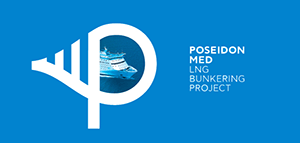
LNG has a number of advantages in comparison with conventional fuels, mainly environmental sustainability which is the key requirement for compliance with European and Worldwide directives. However, LNG also offers benefits such as availability, cost effectiveness and transportability, making it ideal as a marine fuel.
Environmental sustainability
The main advantage of Natural Gas, and therefore of LNG, is that, when burned, the emissions of carbon dioxide, nitrogen oxide, sulphur oxide and particulate matter are considerably lower than that of traditional fossil fuels, such as coal and oil. That makes LNG the cleanest fossil fuel available and a serious answer to the stricter regulations, ensuring compliance. Specifically:
An additional advantage is that when Natural Gas is used in reciprocating engines, the engine noise is reduced considerably.
Availability
LNG is Natural Gas, which is abundantly available in many places all over the world. The Natural Gas resources are immense and can provide us with energy for a very long time.
Cost-effectiveness
In recent years, the available supply of natural gas has increased greatly in some areas of the world resulting in very low cost per unit of energy. Depending on the area of operations and the source of the fuel, LNG can be competitive against any of the petroleum based fuels and less expensive than the low sulphur fuel blends required to comply with ECA emission limits
Transportation
When cooled down to -162°C, the gas liquefies and its volume is reduced by 600 times. Due to its difficulty to ignite, LNG is safe to transport and deposit. This allows it to be stored in tanks or transported by tankers, large-scale ships, or even smaller vessels or tank trucks. So transport is no longer dependent on a network of pipelines, which has always been the case. This is a tremendous advantage, and certainly good news for those countries that have enormous amounts of Natural Gas, but no local market. All they have to do is build a liquefying facility to bring their gas to the market.

The sole responsibility for the content of this webpage lies with the authors. It does not represent the opinion of the European Communities. The European Commission is not responsible for any use that may be made of the information contained therein.
Website Privacy Policy





